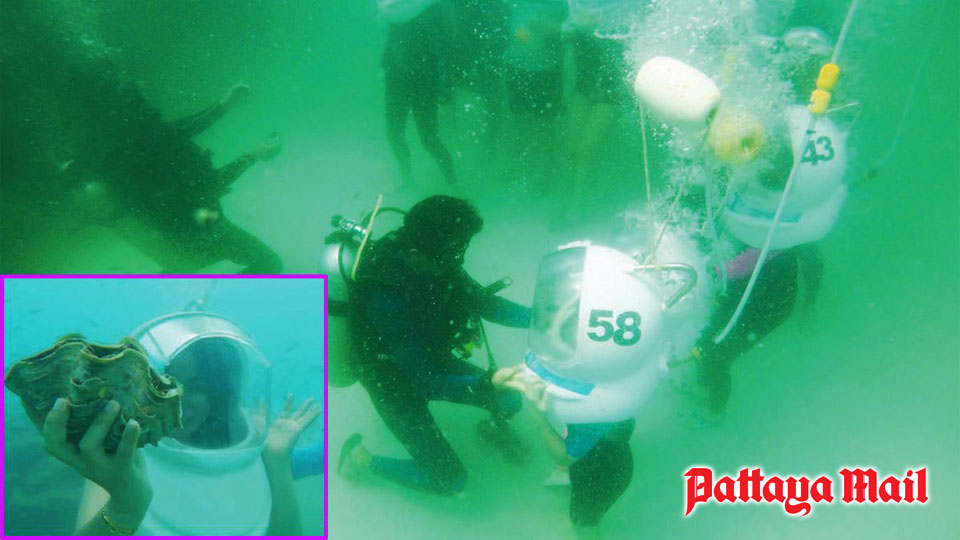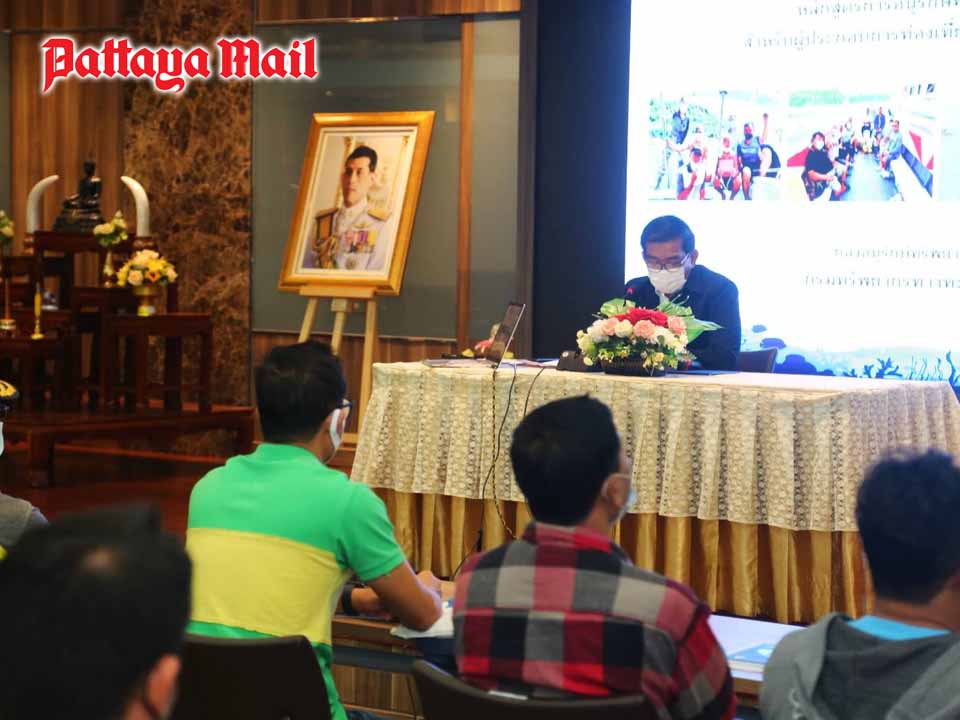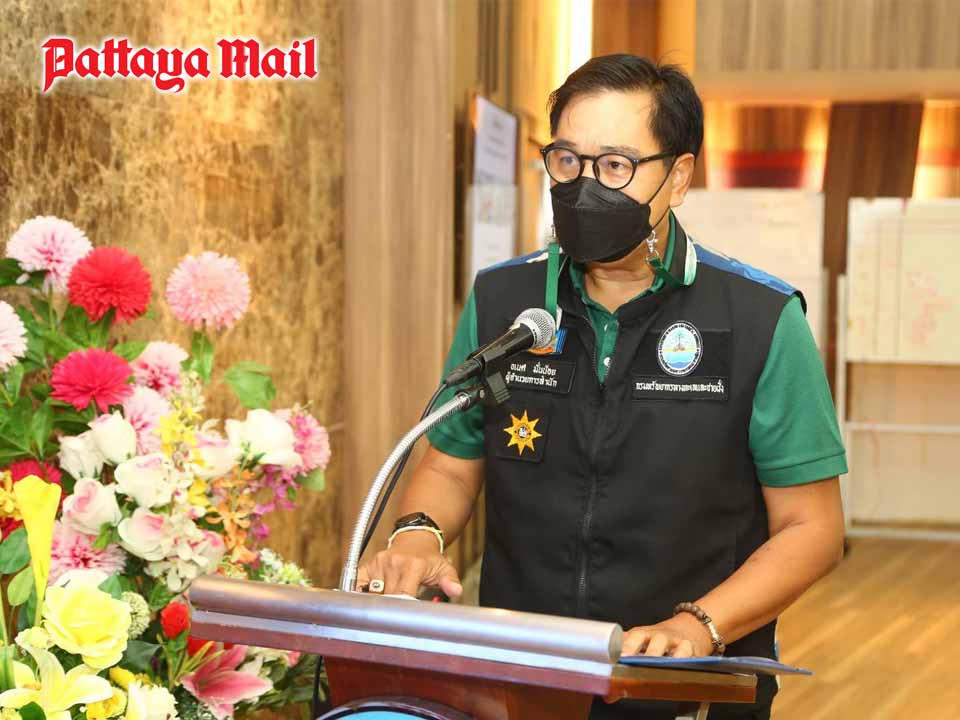
Owners of Pattaya “seawalker” businesses took much-needed lessons on protecting coral and preserving the marine ecosystem as part of a new licensing scheme.
Deputy Mayor Manote Nongyai opened the Dec. 22 workshop with Thanet Mannoi, director of the Marine and Coastal Resources Administration Office 2.
“Seawalking” involves tourists wearing helmets using surface-supplied air and weight belts to allow them to walk on the ocean floor. Unlike scuba diving, seawalkers require no license or training and the businesses themselves are not regulated, despite repeated accidents, deaths and environmental scandals over the past 20 years.
Most recently, seawalkers have been photographed or videoed handling coral with bare hands, likely killing the delicate animals.

The viral outrage that erupted in June finally pushed Pattaya officials to follow through on long-broken promises to regulate the industry.
Regulations adopted at a June 29 meeting require all seawalker operators to be licensed and subject to inspection of their boats, equipment, training and safety practices. In addition, the activity would be limited to 39 designated spots around Pattaya’s Near Islands.
The key requirement of licensing mandates that all operators pass an environmental training course that teaches them about coral and marine animals and what is and isn’t permissible.

Local, regional and national officials have been aware of the risks posed by unregulated seawalking businesses since 2002, when the Science and Technology Institute and Tourism Authority of Thailand met in Pattaya to say that seawalker companies could operate, but must coordinate with the standards set by the authorities.
Fast-forward 19 years and seawalker firms and divers are just as unregulated and reckless as they were at the turn of the century. Crackdowns, licenses and regulation have been promised countless times but, even after an Indian tourist died seawalking seven years ago, nothing changed.

 |
 |
 |





